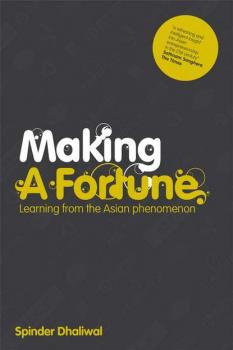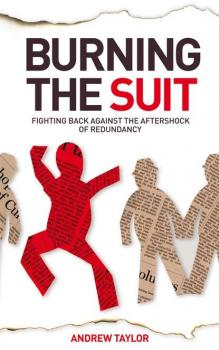Группа авторов
Список книг автора Группа авторовConflict and Cooperation
Allan Schmid’s innovative text, Conflict and Cooperation: Institutional and Behavioral Economics,investigates «the rules of the game,» how institutions–both formal and informal–affect these rules, and how these rules are changed to serve competing interests. This text addresses both formal and informal institutions and the impact of alternative institutions, as well as institutional change and evolution. With its broad applications and numerous practice and discussion questions, this book will be appealing not only to students of economics, but also to those studying sociology, law, and political science. Addresses formal and informal institutions, the impact of alternative institutions, and institutional change and evolution. Presents a framework open to changing preferences, bounded rationality, and evolution. Explains how to form empirically testable hypotheses using experiments, case studies, and econometrics. Includes numerous practice and discussion questions.
Comparative Economic Systems
Comparative Economic Systems: Culture, Wealth and Power in the 21st Century explains how culture, in various guises, modifies the standard rules of economic engagement, creating systems that differ markedly from those predicted by the theory of general market competition. This analysis is grounded in established principles, but also assumes that individual utility seeking may be culturally determined, that political goals may take precedence over public well being, and that business misconduct may be socially detrimental.
Beyond E-Learning
A follow-up to his best-selling E-Learning, Beyond E-Learning explains the most current thinking on how organizations learn and apply what they know to be successful, and explores the increasingly important role that technology plays, not as an end in itself but as a vital means to get there. The book also provides a clear path for helping to integrate learning—including e-learning—knowledge management, and performance support, and will help training professionals and the organizations they serve go beyond common myths and misconceptions about training and e-learning, focus training/learning activities directly on organizational know-how, and implement a framework that can (at last) be a catalyst for true organizational learning.
Lunch and Learn
Lunch and Learn is filled with ready-to-use activities designed for full-time trainers, managers, team leaders, supervisors, and anyone else who acts as a trainer within their organization. The activities are on-the-job learning sessions that explore targeted topics relevant to almost any team or group. Each of the 25 sessions is a short 55-minute learning experience that is based on the best principles of discussion and reflection, creative thinking, problem solving, and action planning. All the book’s activities are organized in a step-by-step fashion and include everything a session leader needs to conduct a successful learning event, from discussion starters and activity handouts through suggestions for wrapping up the session.
Learning by Doing
Designed for learning professionals and drawing on both game creators and instructional designers, Learning by Doing explains how to select, research, build, sell, deploy, and measure the right type of educational simulation for the right situation. It covers simple approaches that use basic or no technology through projects on the scale of computer games and flight simulators. The book role models content as well, written accessibly with humor, precision, interactivity, and lots of pictures. Many will also find it a useful tool to improve communication between themselves and their customers, employees, sponsors, and colleagues. As John Coné, former chief learning officer of Dell Computers, suggests, “Anyone who wants to lead or even succeed in our profession would do well to read this book.”
Training Workshop Essentials
Winner: Gold Axiom Business Book Award in Human Resources, 2010 This unique training resource offers trainers, educators, and facilitators a hands-on guide for designing and implementing training workshops and sessions that incorporate concepts learned from research on how the human brain best obtains, retains, and recalls information. By using this proven approach, trainers can create memorable workshops that are dynamic, fun, and effective events. The author shows how to design, develop, and deliver training from a whole-brain perspective that addresses the three different learning modalities (auditory, visual, and kinesthetic). Trainers can tap into accelerated learning strategies, address needs of different generational and diverse learners, and employ learner-tested techniques by applying key concepts from this book. This important book covers all the basics including selecting a topic specifically to address audience needs. It provides a step-by-step process for creating an outline, designing, developing, and using brain-friendly support materials, choosing the appropriate location (with the right equipment and furnishings), choosing the best time and date, and offers tips for presenting the content to learners in a creative and professional manner. Training Workshop Essentials offers brain-based strategies and techniques that go beyond typical training methods. These approaches will reach out and pull learners into the session's content and allow them to truly experience and retain the information long after the training ends.
Supply Chain Management
Supply Chain Management (SCM) und Efficient Consumer Response (ECR) sind strategische Konzepte mit einer gemeinsamen Sto?richtung, die der Konsumguterindustrie und dem Handel gro?e Wertschopfungspotenziale bieten. Auf dem neuesten Stand der Wissenschaft wird aufgezeigt, wie diese Einsparmoglichkeiten und die Proze?optimierung in der Praxis realisiert werden. Kernbestandteil ist eine reale Fallstudie, anhand derer eine detaillierte Proze?kettenanalyse unter Anwendung der Proze?kostenrechnung entlang der gesamten Supply Chain erfolgt. Dadurch werden Einsparungsmoglichkeiten lokalisiert und transparent. Es bleibt nicht bei fiktiven Ersparnissen, sondern es werden realisierbare Einsparungen benannt. Durch die logisch nachvollziehbaren und auf andere Industriezweige ubertragbaren Ergebnisse werden naheliegende Handlungsaktivitaten fur die Geschaftsfuhrung deutlich und auch Entscheidungstrager, die mit logistischen Problemen nicht vertraut sind, angesprochen. Daruber hinaus empfiehlt sich das Buch fur alle Studenten, die sich mit der Prozessoptimierung vertraut machen mochten. – Theoretische Fundierung und praktische Anwendung von SCM- und ECR- Strategien – Uberblick uber den aktuellen Stand der Wissenschaft zu Collaborative Planning, Forecasting and Replenishment (CPFR), Scan-Based Trading (SBT), Warengruppenmanagement, etc. – Detaillierte Fallstudie mit greif- und ubertragbaren Ergebnissen zur Verbesserung von Proze?optimierung und Wertschopfung – 100 Praxisbeispiele aus Industrie und Handel
Project Management Nation
…Project management is surely one of the most important professions in the IT industry today. This collection of tips, techniques and guidelines helps IT project managers improve their project management skills on a daily basis. This project book highlights (1) Project Strategy, (2)Life-Cycle Development of a project and (3) Testing of an IT product....
Making a Fortune
Asian entrepreneurs and businesses have created wealth faster than the rest of the economy. Asian wealth now creates and sustains more jobs than it has ever done. It stimulates growth in industries and places that would struggle without the engine of entrepreneurship. Asian wealth is diversifying and modernising, it crosses the generational divide. If you want new and old economy wealth, it's in these pages. If you want modern and traditional management practices, they are in this book. If you want a new generation of entrepreneurs and wealth creators, then read on. PRAISE FOR MAKING A FORTUNE «Nobody understands better what makes British Asian entrepreneurs tick. Spinder provides a fascinating insight into business leaders and the inspirational stories behind their success.» Amar Singh, Evening Standard «A refreshing and intelligent insight into Asian entrepreneurship in the 21st century» Sathnam Sanghera, The Times «This is an important book that is being published at just the right time. With immigration a hot topic of conversation and ever-present in political and media circles, this book lays out the contribution of first, second and third generation Asians to the UK in terms of wealth creation, employment and host of other issues. It tells some good stories and has a powerful message for everyone who reads it.»Eric Leenders, Executive Director, British Bankers Association (BBA) “Drawing on her own experiences and the stories of others, Spinder Dhaliwal offers both unique and valuable insights into this community of entrepreneurs. This book is a must for practicing and would be entrepreneurs but also for anyone involved in entrepreneurships from advisors through to academics.” Hamant Verma, Editor Eastern Eye “The personal stories behind some of the UK's most successful Asian businessmen make for fascinating reading. I'm so glad that my good friend and hotel business partner, Surinder Arora, takes his rightful place among them.” Sir Cliff Richard
Burning the Suit
For most people, a fear of redundancy hangs over them like a dark cloud. In Andrew Taylor's case, it was a sudden, brutal push in the back. Building on his contribution to the Aftershock series on dealing with redundancy in The Sunday Times and his own personal experiences, Burning the Suit shows how it can be used as an opportunity to take control of your life. This is for anyone who is looking for more in life than a 9-5 job, featuring: Disaster or Opportunity? What am I going to do? Taking stock, taking control, and taking a new opportunity Outplacement agencies, counsellors, and career coaches Selling yourself Being your own boss Networking Making it happen









